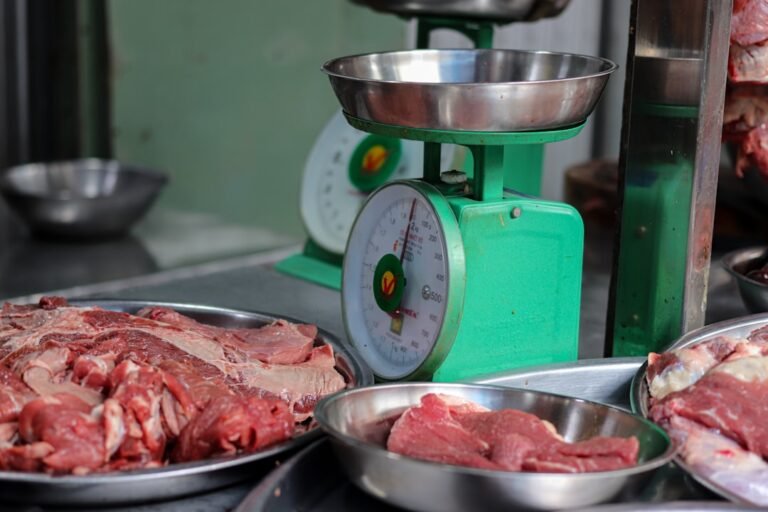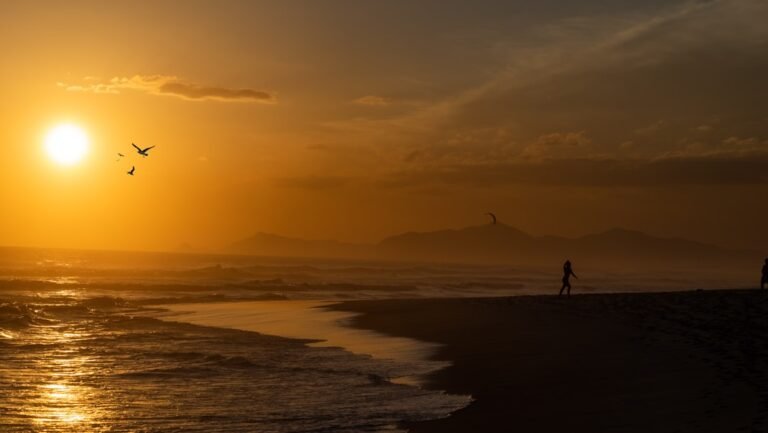Thailand Travel Safety: Essential Tips for a Safe Trip
When traveling to a new destination, it is essential to familiarize oneself with local laws and customs to ensure a smooth and enjoyable trip. Different countries have varying rules and regulations, and respecting these is crucial to avoid legal issues or cultural misunderstandings. Research on local laws regarding alcohol consumption, drug possession, and public behavior is necessary to prevent conflicts with authorities.
Understanding cultural norms and customs helps travelers show respect to the local community and avoid unintentional offense. Awareness of specific dress codes or behavior expectations in certain places, such as religious sites or traditional ceremonies, is important. For instance, in some countries, it is customary to remove shoes before entering homes or places of worship.
Being mindful of these customs helps travelers integrate with the local community and demonstrate appreciation for their way of life. Taking time to educate oneself about local laws and customs before traveling can facilitate easier navigation of the destination and ensure a positive, respectful experience. It is also crucial to be aware of specific laws or regulations related to photography, public displays of affection, or gestures that may be considered offensive in certain cultures.
In some countries, photographing government buildings or military installations may be prohibited and could result in legal consequences. Public displays of affection may be frowned upon in conservative societies, necessitating mindful behavior in public spaces. Understanding and respecting local laws and customs helps travelers avoid unnecessary conflicts or misunderstandings and demonstrates respect for the destination and its people.
Key Takeaways
- Research and understand the local laws and customs of the destination before traveling
- Be aware of transportation safety tips such as using licensed taxis and wearing seatbelts
- Take necessary health and medical precautions including vaccinations and travel insurance
- Avoid scams and tourist traps by being cautious of overly friendly locals and high-pressure sales tactics
- Stay safe in crowded tourist areas by keeping valuables secure and being aware of your surroundings
- Keep emergency contacts and communication information handy in case of any unforeseen situations
- Follow environmental and wildlife safety tips to ensure a safe and responsible travel experience
Transportation Safety Tips
Research and Planning
First and foremost, it’s essential to research the safest and most reliable modes of transportation in your destination. This may involve reading reviews, seeking recommendations from locals or other travelers, and choosing reputable transportation providers with a strong safety record.
Safe Travel Practices
When using public transportation, such as buses or trains, keep an eye on your belongings at all times to prevent theft or pickpocketing. It’s also advisable to be mindful of your surroundings and avoid traveling alone late at night in unfamiliar or unsafe areas. Additionally, when taking taxis or ride-sharing services, only use licensed and reputable providers to ensure your safety.
Additional Safety Measures
Before getting into a taxi, make sure the driver is legitimate and that the vehicle is in good condition. Additionally, always share your travel itinerary with a trusted friend or family member and keep them updated on your whereabouts, especially when using unfamiliar modes of transportation. By prioritizing transportation safety and taking necessary precautions, you can minimize the risk of accidents or theft during your travels and enjoy a worry-free journey.
Health and Medical Precautions

Taking care of your health and well-being is essential when traveling to a new destination. Before embarking on your trip, it’s important to research any potential health risks or required vaccinations for your destination. This may involve consulting with a healthcare professional or visiting a travel clinic to ensure you are up to date on all necessary immunizations and medications for the specific region you will be visiting.
Additionally, it’s advisable to pack a basic first-aid kit with essential items such as bandages, pain relievers, antiseptic wipes, and any prescription medications you may need during your trip. Moreover, staying hydrated and eating safely are crucial aspects of maintaining good health while traveling. Be cautious of consuming tap water or uncooked foods that may pose a risk of foodborne illnesses.
It’s recommended to drink bottled water and eat hot, freshly prepared meals from reputable establishments to minimize the risk of gastrointestinal issues. Furthermore, practicing good hygiene, such as washing your hands frequently and using hand sanitizer, can help prevent the spread of germs and reduce the likelihood of getting sick while traveling. In addition, it’s important to have travel insurance that covers medical emergencies and unexpected health issues during your trip.
This can provide peace of mind knowing that you have access to quality healthcare services if needed. Before traveling, research the local healthcare facilities in your destination and save their contact information in case of an emergency. By taking these health and medical precautions, you can prioritize your well-being while traveling and minimize the risk of illness or injury during your trip.
Avoiding Scams and Tourist Traps
| Category | Metrics |
|---|---|
| Scams | Number of reported scams in popular tourist areas |
| Tourist Traps | Percentage of tourists who fell into tourist traps |
| Prevention | Number of educational campaigns about avoiding scams and tourist traps |
When visiting popular tourist destinations, it’s important to be aware of potential scams and tourist traps that could compromise your travel experience. Scammers often target tourists who may be unfamiliar with the local customs and currency, making it essential to stay vigilant and informed during your travels. One common scam involves overcharging tourists for goods or services, such as taxi rides, souvenirs, or restaurant bills.
To avoid falling victim to these scams, it’s advisable to research the average prices for goods and services in your destination and negotiate prices when necessary. Furthermore, be cautious of individuals who approach you with unsolicited offers or requests for money. This could include fake tour guides, street vendors selling counterfeit goods, or individuals claiming to be in need of financial assistance.
It’s important to politely decline these offers and avoid engaging with strangers who may have ulterior motives. Additionally, be wary of pickpockets and keep your belongings secure at all times, especially in crowded tourist areas where theft is more common. Moreover, research reputable tour operators and guides before booking any excursions or activities to avoid falling into tourist traps.
Some operators may offer subpar experiences or charge exorbitant prices for underwhelming tours, so it’s important to read reviews and seek recommendations from trusted sources. By staying informed and cautious of potential scams and tourist traps, you can protect yourself from financial loss and enjoy a more authentic and rewarding travel experience.
Staying Safe in Crowded Tourist Areas
Crowded tourist areas can present unique safety challenges for travelers, making it important to take precautions to protect yourself and your belongings in these environments. Pickpocketing and theft are common concerns in crowded tourist areas, so it’s essential to keep a close eye on your belongings at all times. Consider using a secure crossbody bag or money belt to keep your valuables safe from potential theft.
Additionally, avoid displaying expensive jewelry or electronics that may attract unwanted attention from thieves. Furthermore, it’s advisable to stay aware of your surroundings and trust your instincts when navigating crowded tourist areas. If you feel uncomfortable or unsafe in a particular location, consider moving to a less congested area or seeking assistance from local authorities or security personnel.
It’s also important to have a designated meeting point in case you get separated from your travel companions in a crowded area. In addition, be cautious of street performers or individuals who may attempt to distract you while an accomplice steals your belongings. Stay focused on your surroundings and avoid engaging with strangers who may have malicious intentions.
If you plan on taking photos in crowded tourist areas, be mindful of your surroundings and avoid leaving your belongings unattended while capturing memorable moments. Overall, by staying vigilant and taking necessary precautions in crowded tourist areas, you can minimize the risk of theft or other safety concerns while enjoying popular attractions and landmarks during your travels.
Emergency Contacts and Communication

Researching Emergency Contacts
Familiarize yourself with the local emergency services phone numbers, including the police, fire department, and medical assistance. This will enable you to quickly access help if needed. Additionally, save the contact information for your country’s embassy or consulate in the destination, as they can provide valuable support in case of emergencies such as lost passports or legal issues.
Ensuring Reliable Communication
Consider purchasing a local SIM card or an international roaming plan for your mobile phone to ensure you have reliable communication during your travels. Having access to a working phone is crucial for contacting emergency services, staying in touch with family members, or accessing maps and translation apps when needed. It’s also advisable to share your travel itinerary with a trusted friend or family member back home so that they are aware of your plans and can assist you if necessary.
Alternative Communication Options
Consider downloading communication apps that offer free messaging and calling services over Wi-Fi or data networks. This can provide an alternative means of communication if you encounter issues with your mobile phone service while traveling. By being prepared with emergency contacts and reliable communication options, you can feel more confident navigating unfamiliar surroundings and handling unexpected situations during your trip.
Environmental and Wildlife Safety Tips
When exploring natural landscapes or wildlife habitats during your travels, it’s important to prioritize environmental conservation and wildlife safety. Respect the natural environment by following designated trails, disposing of waste responsibly, and avoiding activities that may harm local ecosystems or wildlife. Additionally, research any specific guidelines or regulations for visiting protected areas or wildlife reserves in your destination to ensure you are acting in accordance with conservation efforts.
Furthermore, when encountering wildlife in their natural habitats, maintain a safe distance and avoid feeding or approaching animals for close encounters. This not only protects the well-being of the wildlife but also minimizes the risk of potential conflicts or injuries between humans and animals. It’s important to remember that wild animals should be observed from a respectful distance without disrupting their natural behaviors.
In addition, be mindful of any potential environmental hazards such as extreme weather conditions, natural disasters, or unsafe terrain when exploring outdoor environments. Research weather patterns and terrain conditions before embarking on outdoor activities such as hiking or camping to ensure you are adequately prepared for any challenges that may arise. Overall, by prioritizing environmental conservation and wildlife safety during your travels, you can contribute to the preservation of natural habitats while enjoying meaningful experiences in the great outdoors.
If you’re planning a trip to Thailand, it’s important to prioritize safety. From avoiding scams to staying aware of your surroundings, there are several tips to keep in mind. For more information on traveling in Asia, check out this article on how to spend a perfect weekend in Asia. This will give you some great ideas for making the most of your time in the region while also staying safe.
FAQs
What are the general safety tips for traveling in Thailand?
– Always carry a copy of your passport and visa with you.
– Be cautious of your surroundings and avoid displaying expensive items.
– Use reputable transportation and be cautious of scams.
– Respect local customs and traditions, including dress codes for temples and religious sites.
– Be aware of your surroundings and avoid isolated areas, especially at night.
Is it safe to drink tap water in Thailand?
It is not recommended to drink tap water in Thailand. It is advisable to stick to bottled water or use water purification methods.
Are there any health concerns for travelers in Thailand?
Travelers to Thailand should be aware of the risk of mosquito-borne diseases such as dengue fever and malaria. It is advisable to take necessary precautions such as using insect repellent and sleeping under mosquito nets.
What are the common scams to be aware of in Thailand?
Common scams in Thailand include tuk-tuk drivers overcharging, gem scams, and fake tour operators. It is important to be cautious and do research before engaging in any transactions.
What should I do in case of an emergency in Thailand?
In case of an emergency in Thailand, dial 191 for police, 1669 for medical emergencies, and 199 for fire. It is also advisable to contact your embassy or consulate for assistance.






